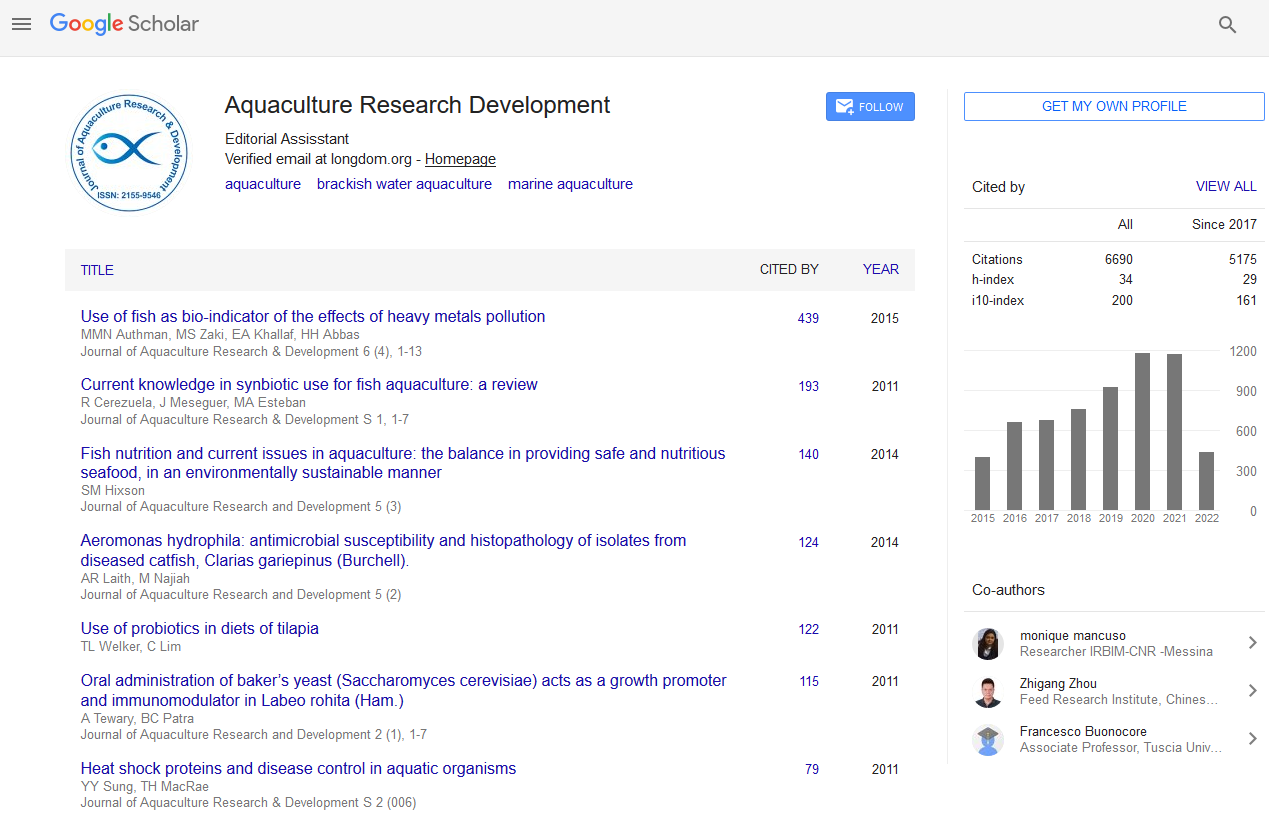PMC/PubMed Indexed Articles
Indexed In
- Online Access to Research in the Environment (OARE)
- Open J Gate
- Genamics JournalSeek
- JournalTOCs
- Scimago
- Ulrich's Periodicals Directory
- Access to Global Online Research in Agriculture (AGORA)
- Electronic Journals Library
- Centre for Agriculture and Biosciences International (CABI)
- RefSeek
- Directory of Research Journal Indexing (DRJI)
- Hamdard University
- EBSCO A-Z
- OCLC- WorldCat
- Scholarsteer
- SWB online catalog
- Virtual Library of Biology (vifabio)
- Publons
- MIAR
- University Grants Commission
- Euro Pub
- Google Scholar
Useful Links
Share This Page
Journal Flyer

Open Access Journals
- Agri and Aquaculture
- Biochemistry
- Bioinformatics & Systems Biology
- Business & Management
- Chemistry
- Clinical Sciences
- Engineering
- Food & Nutrition
- General Science
- Genetics & Molecular Biology
- Immunology & Microbiology
- Medical Sciences
- Neuroscience & Psychology
- Nursing & Health Care
- Pharmaceutical Sciences
Abstract
Seaweed Ulva reticulata a Potential Feed Supplement for Growth, Colouration and Disease Resistance in Fresh Water Ornamental Gold Fish, Carassius auratus
Rama Nisha P, Elezabeth Mary A, Uthayasiva M and Arularasan S
Gold fish (Carassius auratus) being an omnivorous fish was chosen as the candidate fish. Fingerling of C.
auratus 2.34 gm after acclimated to laboratory condition for a period of 15 days were used in various studies. Five feeding types with 35% dietary protein level and with varying levels of algal meal were prepared and used. The fish were divided in to 5 groups. Group I was fed on Ulva reticulata free diet. Fish belonging to groups II, III, IV and V were fed on diets with 2, 4, 6 and 8% of Ulva reticulata supplementation respectively for 40 days. At the end of the experimental period growth, proximate composition, haematological parameters and carotenoid content were analyzed. It can be conclusively deduced from this study that Ulva reticulata had positively improved growth performance, haematological parameters and coloration in gold fish C. auratus. Reasons could be the high nutrient and mineral profile and carotene and chlorophyll a, b content of Ulva reticulata. This study suggests that U. reticulata can be included as an ingredient of gold fish diet up to 8%. Owing to the presence of disease resistance imparting antibacterial substances in the algae gold fish remained active and healthy and were free from bacterial infection, during the period of investigation. Antibacterial activity of U. reticulata on the tested fish pathogens indicates the scope of using extracts of U. reticulata an immuno- prophylactic for health management in the culture of Gold fish. Based on the results of this study, it was concluded that short term feeding had no adverse effect on gold fish but long term effect needs future research. Future work should focus on digestibility coefficients of different nutrient classes in U. reticulata prior to inclusion in formulated diets.


